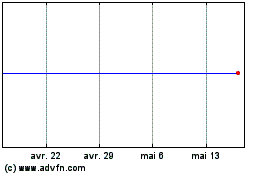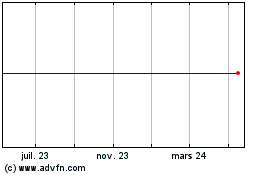By Deepa Seetharaman and John D. McKinnon
Attorney General Jeff Sessions plans to gather state attorneys
general to discuss whether social-media giants may be harming
competition and "intentionally stifling" certain viewpoints,
stepping up pressure on the platforms over alleged anticonservative
bias.
The Justice Department raised the prospect of a possible
investigation just as Facebook Inc. Chief Operating Sheryl Sandberg
and Twitter Inc. Chief Executive Jack Dorsey were wrapping up
morning testimony about protecting their platforms from foreign
influence.
In the Senate hearing, they expressed contrition for allowing
their platforms to be abused in the past while pledging to make
protecting their systems from during the 2018 midterm elections a
priority.
The day's actions produced a split-screen effect: As most
Republicans and Democrats on the Senate Intelligence Committee
focused their attention on whether the U.S. midterms are
sufficiently safeguarded, the Trump administration focused on its
longstanding complaint: that the platforms are allegedly biased
against allies of President Trump.
In an interview published Wednesday morning with the Daily
Caller, Mr. Trump accused social media companies of interfering in
elections in favor of the Democrats.
"The truth is they were all on Hillary Clinton's side," he
said.
In a statement, Justice Department spokesman Devin O'Malley said
the agency listened "closely" to the morning's testimony. He said
Attorney General Jeff Sessions has convened a meeting this month
with state attorneys general "to discuss a growing concern that
these companies may be hurting competition and intentionally
stifling the free exchange of ideas on their platforms."
A Justice Department spokesman said alleged stifling of
viewpoints has been a longstanding concern of Mr. Sessions and the
meeting had been in the works before Wednesday morning's
hearing.
Mr. Trump had previously levied claims against Google last week
that it was elevating critical news stories about his presidency at
the expense of friendly conservative voices, an assertion Google
has rejected.
There was no Google representative at Wednesday's hearing, amid
a dispute with the committee over how senior an executive the
company needed to send. The company was represented by an empty
chair next to Facebook's Ms. Sandberg and Twitter's Mr. Dorsey.
Alex Jones, the founder of far-right conspiracy site Infowars
and one of the most prominent critics of social-media services,
attended the Senate hearing. At one point, he berated Sen. Marco
Rubio (R., Fla.), calling him a "frat boy" and touching him on the
shoulder during a media scrum. Mr. Rubio professed not to know who
he was and he told him not to touch him.
"You're not going to get arrested, man. You're not going to get
arrested; I'll take care of you myself," Mr. Rubio said.
Several technology companies, including Apple and Facebook have
removed content from Infowars, saying it violated company policies.
Mr. Jones was also briefly suspended by Twitter.
In the hearing room, lawmakers and witnesses focused on
preventing a replay of the 2016 election, in which Russian agents
launched a multipronged cyber campaign to influence the election,
and to tilt voters in Mr. Trump's favor, according to the U.S.
intelligence community.
"Let me be clear: We are more determined than our opponents and
we will keep fighting," Mr. Sandberg said in her remarks, during
which she outlined the various changes Facebook has made to its
platform to make political ads more transparent and suppress
demonstrably false news.
For his part, Mr. Dorsey expressed, in personal terms, the
importance of Twitter to public discourse. He added that the
company was investigating what type of behavior the platform
incentivizes. He later said Twitter was exploring a new feature to
label bots. "We are going to do something along those lines," he
said.
Wednesday afternoon, the House Commerce Committee is questioning
Mr. Dorsey, whose platform has been a focus of many Republicans'
ire, about alleged anticonservative bias on the platform.
During the Senate hearing, lawmakers expressed doubt about the
effectiveness of the platforms' measures so far.
"Clearly this problem's not going away," Sen. Richard Burr (R.,
N.C.), the Senate Intelligence Committee chairman, said in opening
remarks. "I'm not even sure it's trending in the right
direction."
The panel's top Democrat, Sen. Mark Warner of Virginia, told the
executives he was "skeptical that ultimately you'll be able to
address this problem on your own." He has already circulated a
white paper with options for far-reaching congressional action.
Other members of Congress also have begun considering
legislation on issues ranging from online privacy to political bias
to the tech platforms' legal responsibility for users' actions.
--Sadie Gurman contributed to this article.
Write to Deepa Seetharaman at Deepa.Seetharaman@wsj.com and John
D. McKinnon at john.mckinnon@wsj.com
(END) Dow Jones Newswires
September 05, 2018 14:48 ET (18:48 GMT)
Copyright (c) 2018 Dow Jones & Company, Inc.
Twitter (NYSE:TWTR)
Graphique Historique de l'Action
De Juin 2024 à Juil 2024

Twitter (NYSE:TWTR)
Graphique Historique de l'Action
De Juil 2023 à Juil 2024
